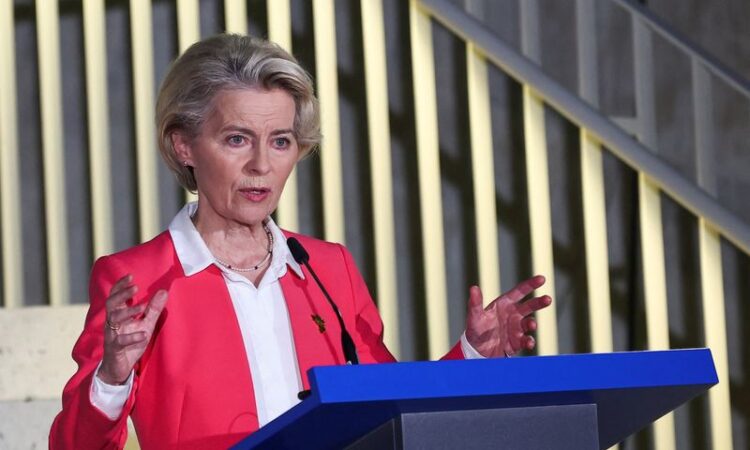
TIRANA (Reuters) – The European Union wants to bring six Western Balkan countries closer to membership of the bloc but wants them first to implement reform and create their own single market, European Commission President Ursula von der Leyen said on Monday.
Having been promised EU membership years ago, the accession process across the region comprising Albania, Bosnia, Kosovo, Montenegro, North Macedonia and Serbia has slowed to a crawl, mainly due to reluctance among the bloc’s 27 members and a lack of reform throughout the region.
Von der Leyen, attending a summit of the Berlin Process in Tirana – a German initiative aimed at improving cooperation in the Western Balkans, said the EU and the region must now bring their economies closer together.
“We really have to tap into the potential … in the Western Balkans and get it closer to the European single market,” she told a news conference in the Albanian capital.
Leaders from across the region joined von der Leyen, European Council President Charles Michel, German Chancellor Olaf Scholz and Albanian Prime Minister Edi Rama at the summit.
Von der Leyen said the new growth plan that would include the opening of the EU’s common market to the Western Balkans in areas such as free movement of goods and services, transport, energy and the digital single market, would also require deep-rooted reforms.
“These reforms will be accompanied by funding for investment from the EU, if they take place,” she said.
According to the EU Commission, a 30 billion-euro economic and investment plan for the region offered by the EU in 2020 has so far triggered investments worth 16 billion euros there.
Von der Leyen said that if the Western Balkan nations create their own common market it would boost their economies by a combined 10%.
Scholtz said the Berlin Process was “the best instrument” to speed up the integration of Western Balkan countries.
“Any progress you make on the common regional market will bring you significantly closer to EU standards,” he said.
Last year, Serbia, Albania and North Macedonia signed mobility agreements allowing people to travel and work in the three countries with just their identity cards. On Monday, the six countries agreed to continue with mutual recognition of professional qualifications.
Serbia and Montenegro were the first in the region to launch EU membership talks, and Albania and North Macedonia then began talks with Brussels last year. Bosnia and Kosovo still lag far behind their neighbours in the process, however.
($1 = 0.9482 euros)
(Reporting by Aleksandar Vasovic; Editing by Hugh Lawson)






